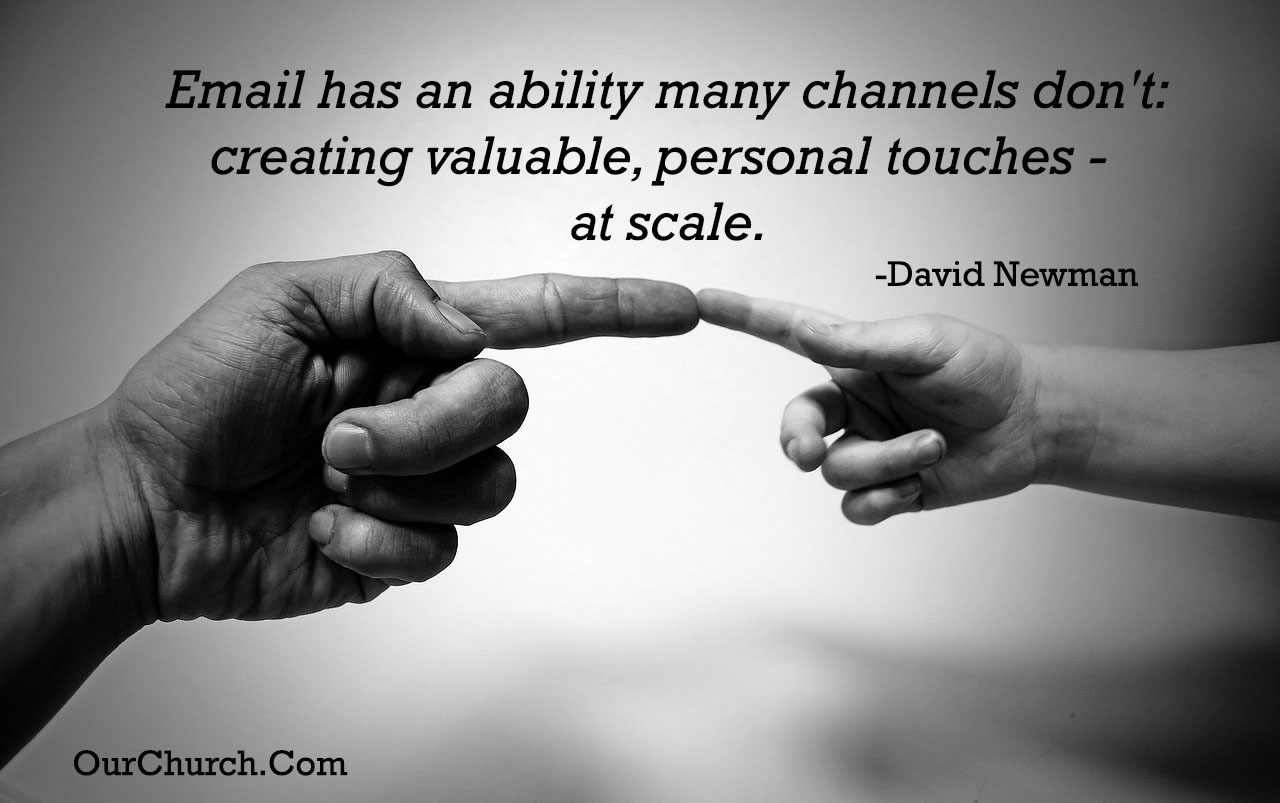Email – it is still the most reliable form of mass communication.
In the past, web hosting accounts included email service, so that if you setup web hosting for MyChurch.org, in the same account you could setup email accounts like info@MyChurch.org and PastorBill@MyChurch.org
After leading a company that provides web hosting for more than 2 decades, I can tell you that email accounts are the most problematic, frustrating and time-consuming component of web hosting services. There are just so many moving parts – the user’s computer, email software/tool, spam filters, ISP, email account on the server – that setting up email accounts and fixing problems can be very challenging.
As a result, many web hosting companies have don’t offer email services at all (e.g. Clover, MyChurchWebsite).
As a church, you have 3 options when it comes to email:
1) Every man (and woman) for him/herself.
Every person gets their own email account with Gmail, Yahoo or whatever service they like best. This is the easiest option, however, the downside of this is it lacks branding and authority.
Imagine you and your family just moved into the area, and you visit several churches. If you get an email from PastorBill93701@gmail.com, it might end up in your spam folder, you might mistake it for spam and delete it, or you might be left wondering which church Pastor Bill is from.
Now imagine you also have kids… You also get an email from martha747@yahoo.com saying she’s the children’s minister at a church you visited, but you don’t remember meeting her. And you get an email from ricklovespizza@aol.com saying he’s the youth pastor and wants to invite your teenage daughter to the pool party the youth group is having at his house.
Do you think these random email addresses make you more connected or more awkward?
2) Specialty email services.
Some companies have developed email services that are independent of web hosting. These include Google Workspace (formerly known as GSuite) and Office 365 by Microsoft. I don’t know about Microsoft, but Google has a program in which it makes G Suite available for free to nonprofits. This is a pretty good solution if your church is a registered 501c3 and you’re willing to go through the application process.
3) Web Hosting with email.
This is the traditional solution where email hosting is provided along with web hosting services. You can can setup @MyChurch.org email accounts for each staff person and any ministry you like.
Now imagine your while you’re visiting churches, you get an email from PastorBill@MyChurch.org, children@MyChurch.org or youth@MyChurch.org. You instantly know which church the emails are from, and you have confidence they’re legitimate emails.
If you want your church email accounts to be handled in your web hosting account, you need to make sure your web hosting account includes email.
Email has an ability many channels don’t: creating valuable, personal touches – at scale. -David Newman

Church Email Hosting service
OurChurch.Com offers church email hosting as an add-on to our web hosting /website builder packages.
To order email hosting and web hosting together, go to our Church Web Hosting page, SELECT your package, and when you get to the checkout step, click the link to “Continue Shopping,” click the “Email Add-ons” category on the left side, and then select the number of email accounts you need.
If you already have a web hosting account with us and want to add email hosting, you can order email hosting here.
Comment and Discuss:
- Which of the 3 email options described above is your church using? Why?



1 Comment
Very informative